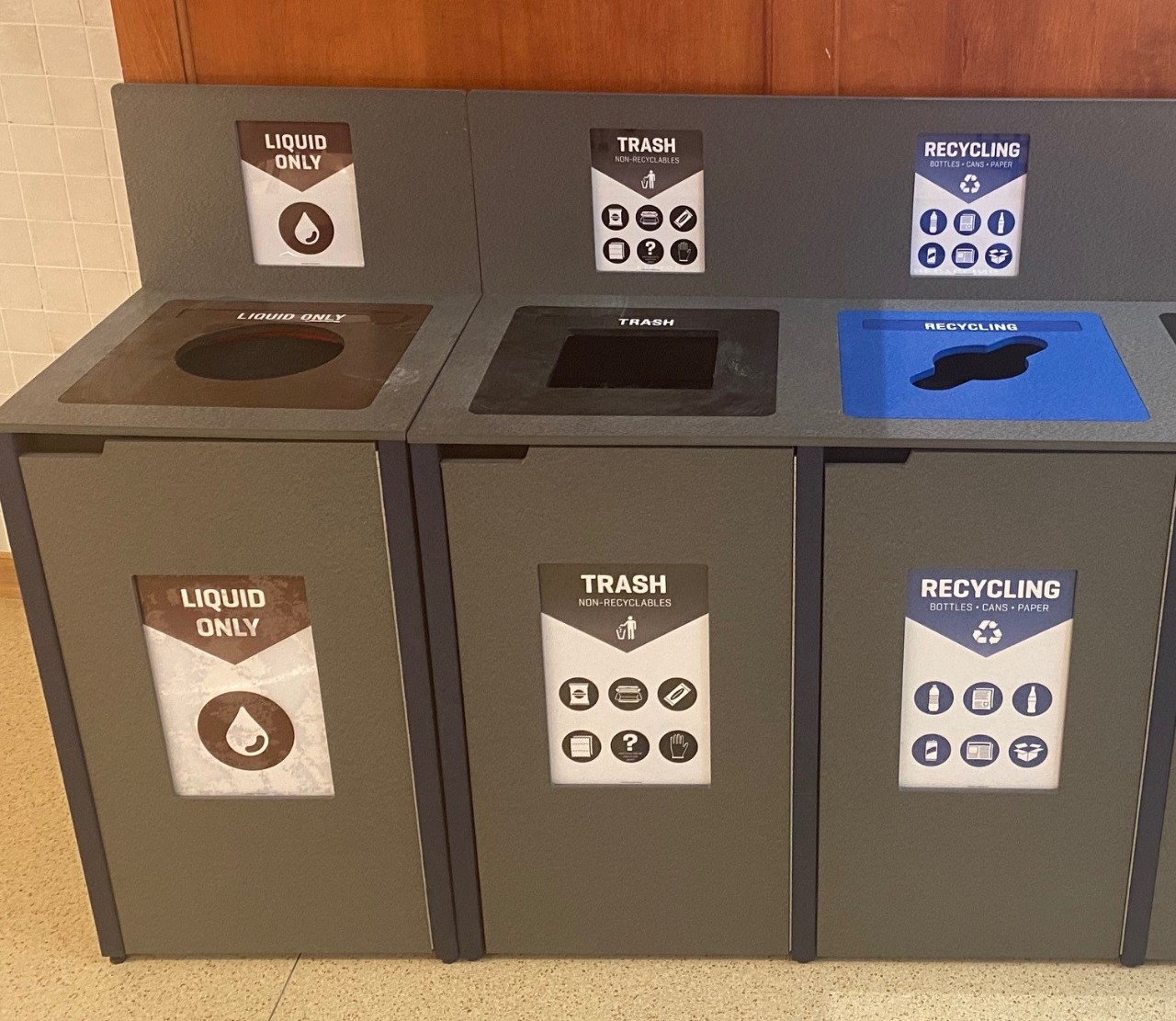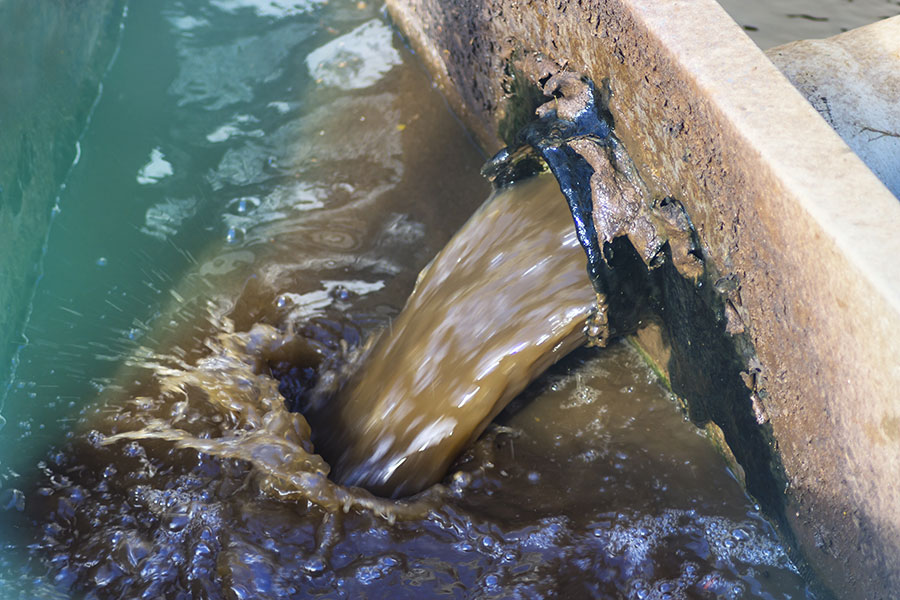Industrial Wastewater Treatment: Customized Solutions for Facility Wastewater Difficulties
Industrial Wastewater Treatment: Customized Solutions for Facility Wastewater Difficulties
Blog Article
Comprehending the Comprehensive Process of Liquid Waste Disposal: Finest Practices and Environmental Influence Considerations
The administration of liquid garbage disposal is a diverse issue that needs a thorough understanding of different ideal practices and their linked ecological effects. From the kinds of fluid waste produced to the techniques employed for collection, therapy, and last disposal, each step plays a vital role in safeguarding ecological communities and public wellness. As regulative requirements evolve and modern technology breakthroughs, the conversation around these processes comes to be progressively relevant. What implications do these adjustments hold for future sustainability efforts, and how can stakeholders guarantee that they are effectively dealt with?
Kinds Of Fluid Waste
Understanding the different kinds of liquid waste is important for reliable monitoring and disposal techniques. Fluid waste can be broadly classified into numerous types, each requiring one-of-a-kind handling and therapy approaches.
Industrial liquid waste commonly includes harmful materials, consisting of heavy metals, solvents, and chemicals, created throughout producing procedures. These wastes demand strict regulatory conformity to safeguard human health and wellness and the setting. Residential fluid waste mostly refers to wastewater produced from homes, consisting of sewage and greywater, which, although less harmful, can still present considerable risks if poorly handled.
Agricultural liquid waste, consisting of drainage from ranches, commonly contains fertilizers and pesticides that can bring about ecological degradation if not dealt with sufficiently. Clinical liquid waste, produced from health care centers, consists of polluted fluids such as bodily fluids and chemicals, requiring specialized disposal approaches to prevent infection and ecological contamination.
Lastly, oil and oil waste, generally produced by restaurants and automobile markets, can create serious clogs in sewage system systems if not managed properly. Understanding these classifications helps with targeted techniques for treatment, conformity with laws, and efficient disposal techniques, ultimately advertising environmental sustainability and public health safety.

Collection Approaches
Reliable collection methods are important for the appropriate management of fluid waste, making sure that it is gathered securely and efficiently prior to treatment or disposal. Numerous techniques are used depending on the sort of liquid waste created, the volume, and the details qualities of the waste.
One usual technique is making use of devoted collection containers or sumps, which are developed to record liquid waste at the resource. These systems often integrate pumps that facilitate the transfer of waste to larger storage space containers or treatment centers. Additionally, mobile collection systems equipped with vacuum modern technology are employed in circumstances where waste is created intermittently or in hard-to-reach places.
For commercial settings, closed-loop systems can properly minimize leakages and spills, permitting the healing and reuse of fluid waste. It is likewise necessary to educate personnel on proper collection methods to alleviate threats associated with harmful materials.
Furthermore, carrying out normal upkeep timetables for collection equipment guarantees ideal efficiency and safety and security. The integration of advanced tracking systems can improve collection effectiveness by giving real-time data on waste degrees and possible hazards. In general, efficient collection approaches are fundamental to lasting fluid waste administration methods.
Therapy Procedures
Treatment processes play a crucial function in the administration of liquid waste, transforming potentially dangerous materials into multiple-use sources or secure effluents - liquid waste disposal. These procedures can be extensively categorized right into physical, chemical, and organic techniques, each tailored to address specific impurities existing in the waste stream
Physical therapy techniques, such as sedimentation and filtration, job by getting rid of put on hold solids and particle issue. These strategies are usually the very first step in the therapy chain, effectively lowering the lots on succeeding procedures. Chemical therapies involve using reagents to counteract dangerous compounds, precipitate hefty steels, or oxidize organic toxins, thereby boosting the security of the effluent.
Biological treatment processes, consisting of turned on sludge systems and anaerobic food digestion, take advantage of the all-natural capabilities of bacteria to degrade raw material. These approaches are specifically effective for More Help wastewater consisting of biodegradable pollutants. Advanced therapy modern technologies, such as membrane filtering and progressed oxidation processes, are progressively utilized to attain higher levels of filtration.
Integrating a mix of these treatment approaches not just ensures compliance with regulative criteria but likewise promotes ecological sustainability by recuperating useful resources from fluid waste.
Disposal Options
Just how can organizations make sure the accountable and safe disposal of liquid waste? Efficient disposal options are crucial for safeguarding public health and wellness and the atmosphere. The key approaches include land disposal, therapy, and incineration complied with by discharge into local wastewater systems.
Land disposal includes the mindful control of liquid waste in assigned garbage dumps, ensuring that it does not seep right into bordering dirt or water. Incineration, on the various other hand, topics liquid waste to high temperatures, converting it right into ash and gases, which need appropriate filtering to lessen discharges. This technique appropriates for harmful wastes that can not be treated with typical methods.
In instances where fluid waste can be dealt with, companies might select organic or chemical therapy procedures to counteract hazardous components prior to releasing the treated effluent into local systems. This route generally aligns with governing requirements, making certain that the effluent fulfills security criteria.
Eventually, organizations must conduct extensive evaluations of each disposal choice to establish its feasibility, thinking about elements such as waste make-up, governing compliance, and possible risks to health and wellness and the setting. By choosing proper disposal methods, organizations can add to a liable waste administration technique.
Environmental Effect
The ecological effect of liquid garbage disposal is a vital consideration for organizations seeking to lessen their eco-friendly footprint. Incorrect disposal approaches can bring about significant contamination of water resources, soil degradation, and damaging impacts on neighborhood communities. For instance, unsafe liquids can seep into groundwater, presenting dangers to drinking water products and marine life. Furthermore, the discharge of untreated or improperly dealt with waste right into surface waters can lead to eutrophication, bring check this site out about oxygen depletion and the succeeding fatality of fish and various other microorganisms.

To alleviate these impacts, companies have to take on best practices such as executing strenuous waste treatment procedures, promoting recycling and reuse, and adhering to regulative criteria. By taking a proactive technique to fluid waste monitoring, entities can substantially reduce their environmental impact while supporting lasting development objectives. Inevitably, a detailed understanding of the ecological impacts connected with liquid garbage disposal is necessary for educated decision-making and responsible stewardship of natural resources.
Conclusion
Effective monitoring of liquid waste is essential for guarding ecological stability and public wellness. Inevitably, an extensive understanding of fluid waste disposal not only minimizes environmental influences yet likewise fosters a dedication to liable resource management and environmental stewardship.
The management of liquid waste disposal is a diverse concern that requires a comprehensive understanding of numerous ideal methods and their linked ecological effects. From the kinds of liquid waste produced to the techniques employed for collection, therapy, and last disposal, each action plays a vital role in securing ecosystems and public health and wellness.The ecological impact of fluid waste disposal is an important consideration for companies looking for to decrease their environmental footprint. Inevitably, a detailed understanding of the environmental effects connected with fluid waste disposal is essential for educated decision-making and accountable stewardship of all-natural resources.
Eventually, a detailed understanding of liquid Read Full Report waste disposal not just minimizes ecological influences but likewise cultivates a dedication to liable resource monitoring and ecological stewardship.
Report this page